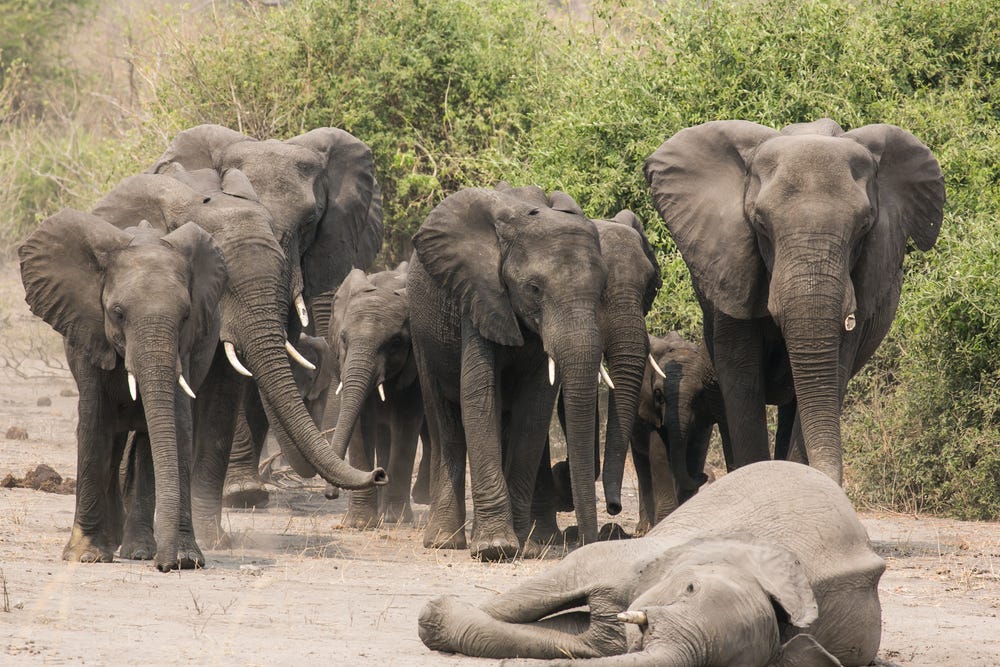Elephants are widely known for their strength and intelligence, but their capacity for emotion is what truly sets them apart. Documented by researchers and conservationists, elephants have been observed mourning their dead — lingering around the body, gently touching the bones with their trunks, and even covering the deceased with leaves or soil. This grieving behavior, rarely seen in the animal kingdom, suggests that elephants possess a level of emotional depth comparable to humans.
Scientific studies show that elephants have a highly developed hippocampus and temporal lobe, areas of the brain associated with emotion and memory. This neurological complexity allows them to form deep social bonds, not just within family units but across generations. Experts like Dr. Joyce Poole, who has studied elephant behavior for over 40 years, have recorded instances of elephants returning to the bones of their loved ones years later, indicating long-term memory and emotional attachment.
Understanding how elephants grieve helps reframe our view of them from majestic creatures to sentient beings with inner lives. This knowledge underscores the ethical importance of conservation efforts and habitat protection. As humanity continues to expand, recognizing the emotional intelligence of elephants invites us to treat them not merely as species to preserve — but as fellow beings capable of love, loss, and remembrance.










